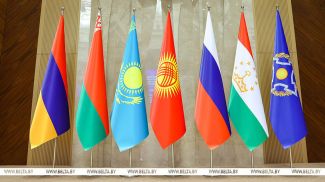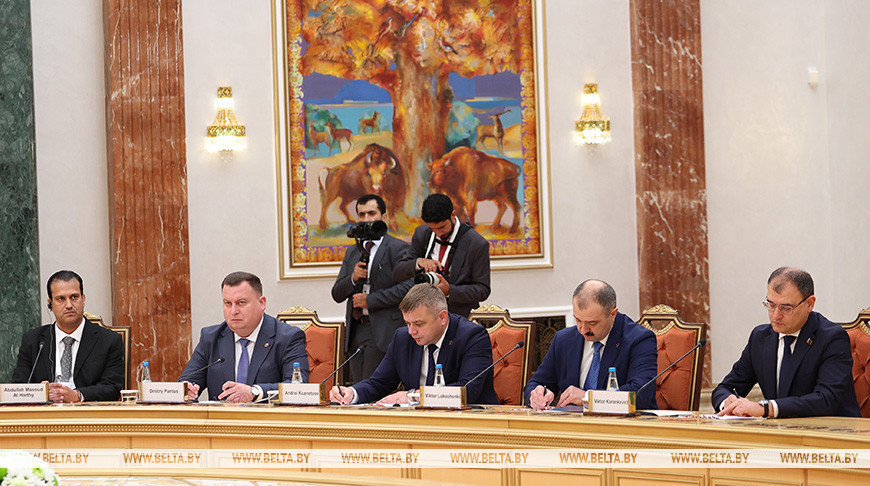
MINSK, 6 October (BelTA) - It is now crucial to direct all efforts on implementing the roadmap for cooperation between Belarus and Oman, Belarusian Deputy Prime Minister Viktor Karankevich told the media following the talks between Belarusian President Aleksandr Lukashenko and Sultan Haitham bin Tariq Al Said of Oman and the ceremony of exchanging the texts of the bilateral documents in Minsk on 6 October, BelTA has learned.
The package of international agreements signed by Belarus and Oman includes a roadmap, which, according to the deputy prime minister, outlines the main avenues of developing mutually beneficial cooperation between the two countries. The document provides for the implementation of the agreements reached at the highest level, including those on a major timber processing project, on cooperation in the manufacturing sector in general and the establishment of joint ventures. The roadmap also envisages cooperation in the agricultural sector, tourism and supplies of food products and baby food. Special attention is given to cultural interaction.
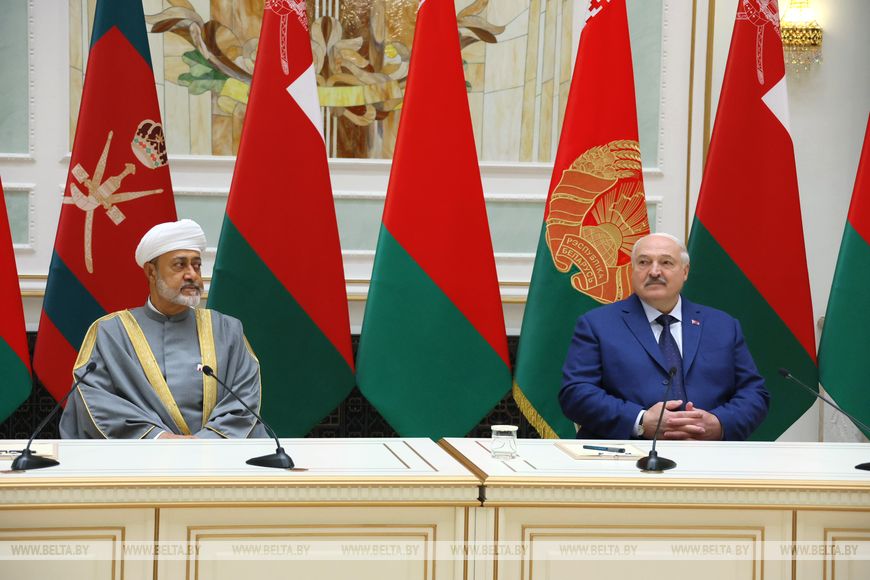
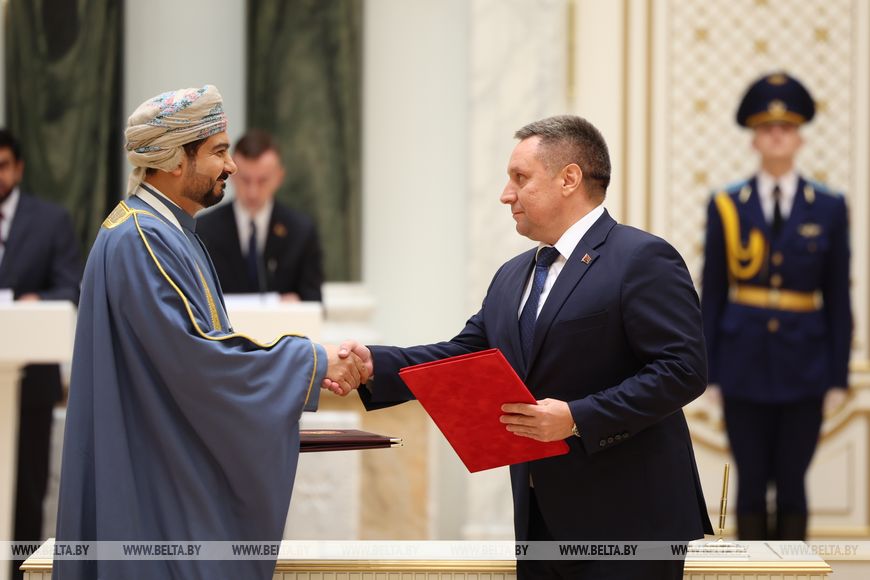
“The roadmap is quite detailed and covers almost all areas of mutually beneficial cooperation. Primarily, it concerns the implementation of the agreements reached at the level of the heads of state,” Viktor Karankevich said.
He also explained that the document outlines deadlines for the assigned tasks and identifies those responsible for them. “The most important task for the government, state administration bodies, and economic entities is to ensure the implementation of all the outlined plans, all points of the roadmap, and action plans within the established deadlines and in full,” the deputy prime minister emphasized. “The most crucial thing now is to direct all efforts and focus on executing the roadmap.”
In his opinion, all this will help unlock the yet untapped potential in relations between Belarus and Oman and enhance interaction.
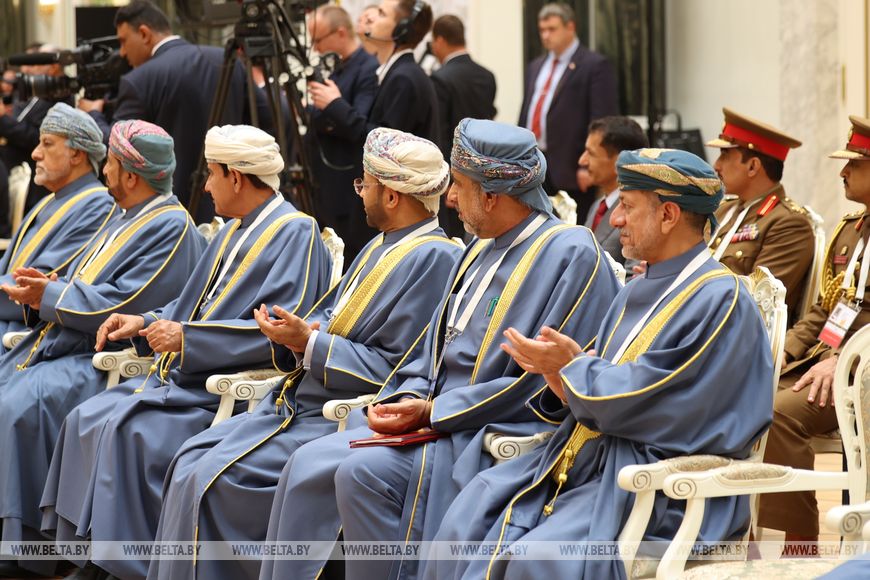
According to the Belarusian side, trade and economic cooperation with Oman is advancing dynamically. It has gained momentum over the past two years. Bilateral trade reached $8.44 million in 2024, growing 2.2 times over 2023. Notably, this figure is largely comprised of Belarusian exports, which saw a 2.3-fold increase to $8.16 million. The significant growth was partly due to increased supplies of milk powder, whey, and engines.
The package of international agreements signed by Belarus and Oman includes a roadmap, which, according to the deputy prime minister, outlines the main avenues of developing mutually beneficial cooperation between the two countries. The document provides for the implementation of the agreements reached at the highest level, including those on a major timber processing project, on cooperation in the manufacturing sector in general and the establishment of joint ventures. The roadmap also envisages cooperation in the agricultural sector, tourism and supplies of food products and baby food. Special attention is given to cultural interaction.


“The roadmap is quite detailed and covers almost all areas of mutually beneficial cooperation. Primarily, it concerns the implementation of the agreements reached at the level of the heads of state,” Viktor Karankevich said.
He also explained that the document outlines deadlines for the assigned tasks and identifies those responsible for them. “The most important task for the government, state administration bodies, and economic entities is to ensure the implementation of all the outlined plans, all points of the roadmap, and action plans within the established deadlines and in full,” the deputy prime minister emphasized. “The most crucial thing now is to direct all efforts and focus on executing the roadmap.”
In his opinion, all this will help unlock the yet untapped potential in relations between Belarus and Oman and enhance interaction.

According to the Belarusian side, trade and economic cooperation with Oman is advancing dynamically. It has gained momentum over the past two years. Bilateral trade reached $8.44 million in 2024, growing 2.2 times over 2023. Notably, this figure is largely comprised of Belarusian exports, which saw a 2.3-fold increase to $8.16 million. The significant growth was partly due to increased supplies of milk powder, whey, and engines.




